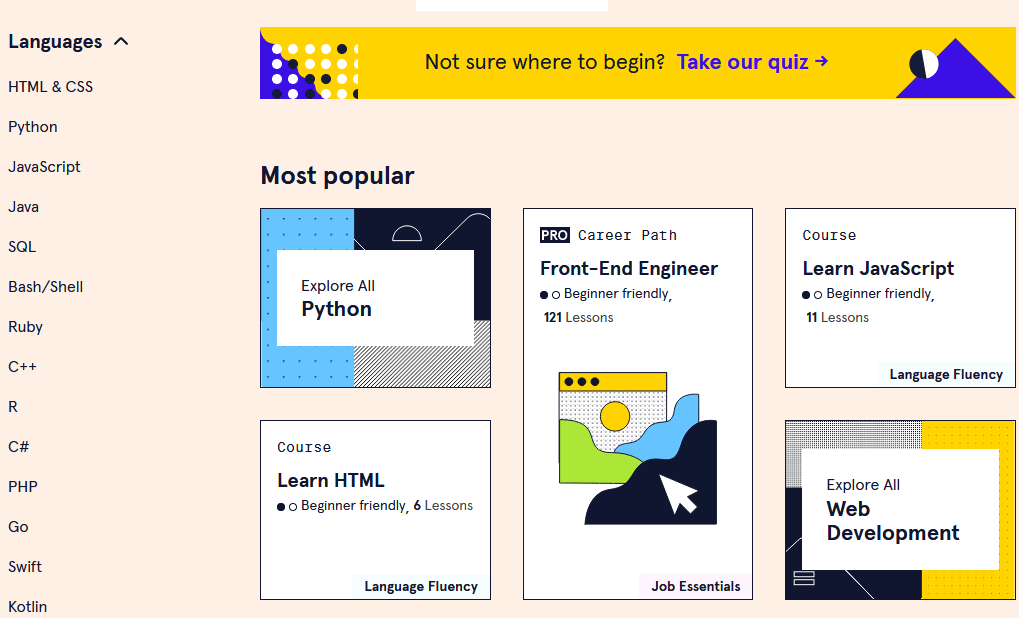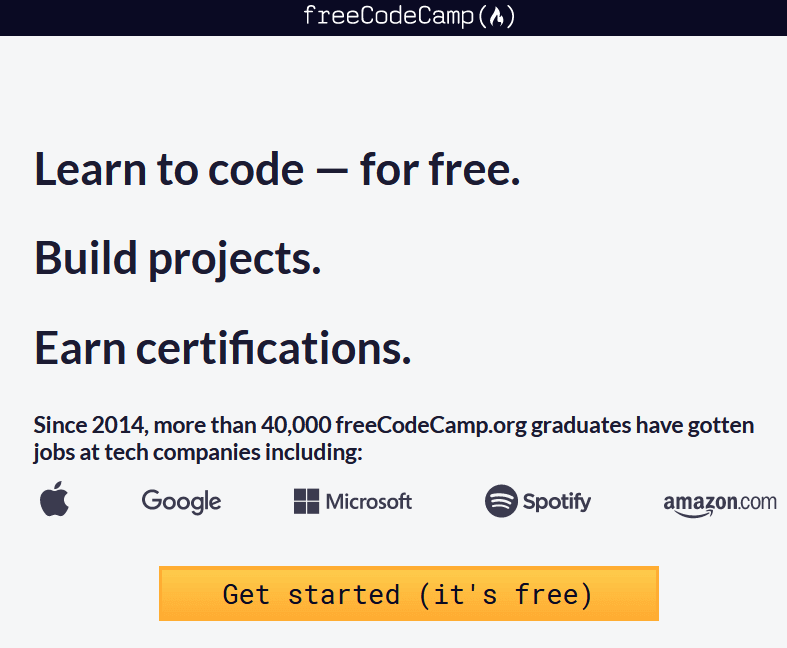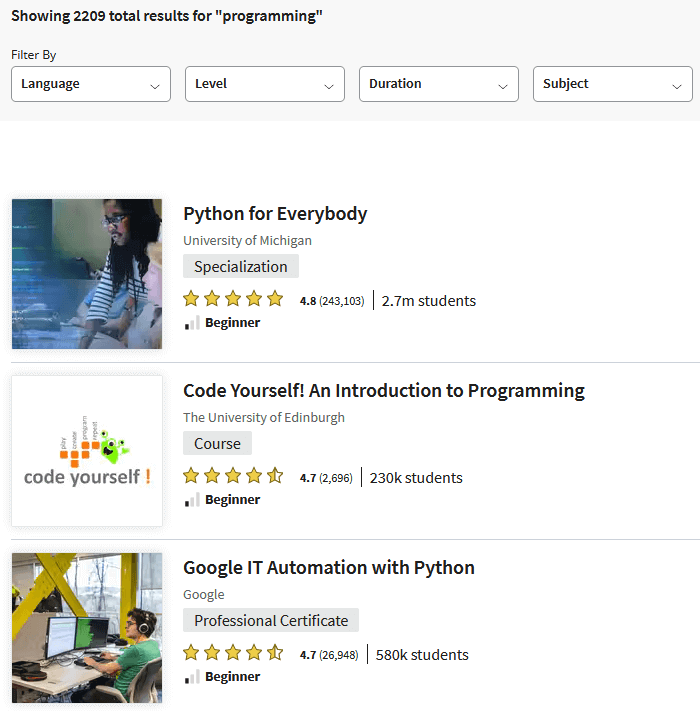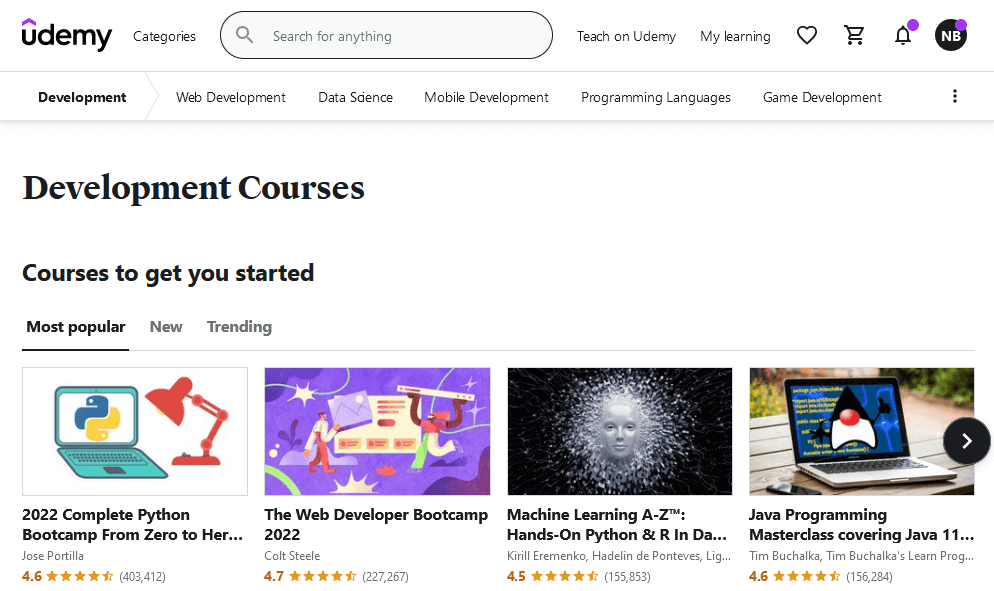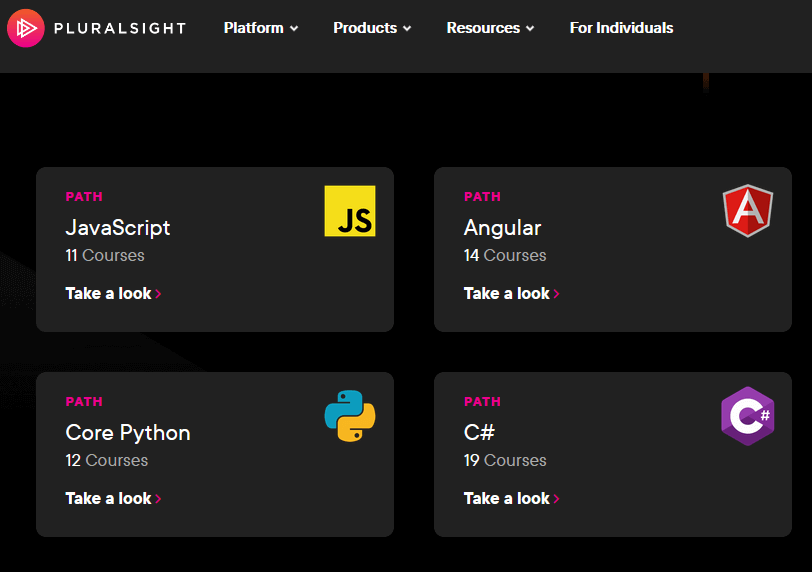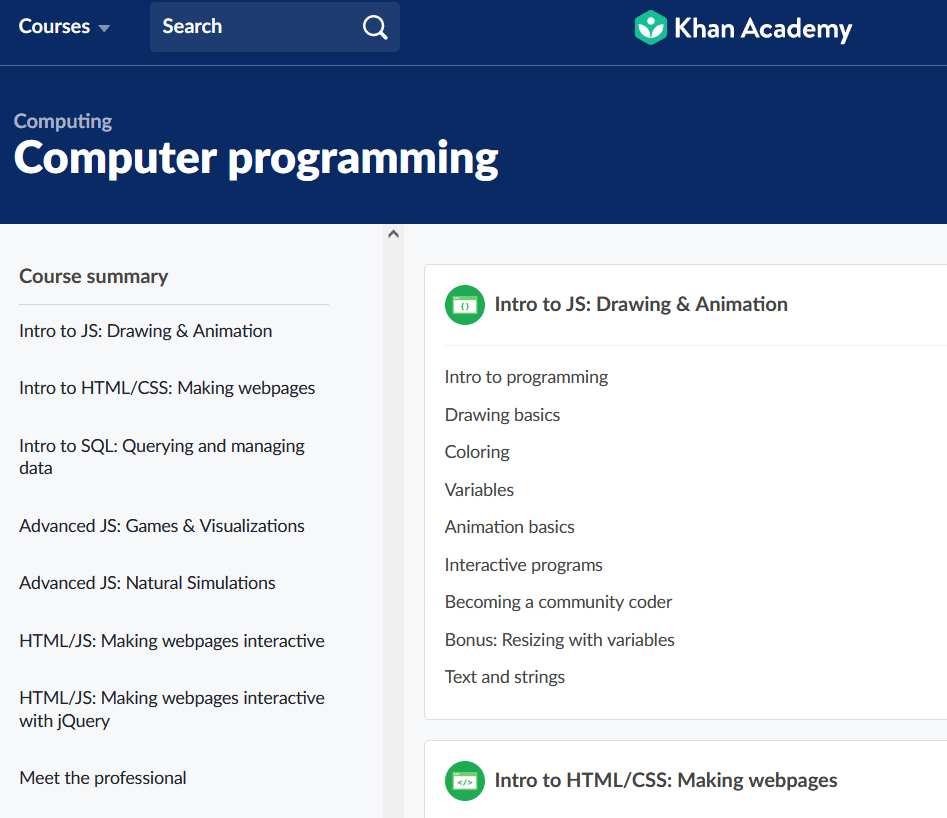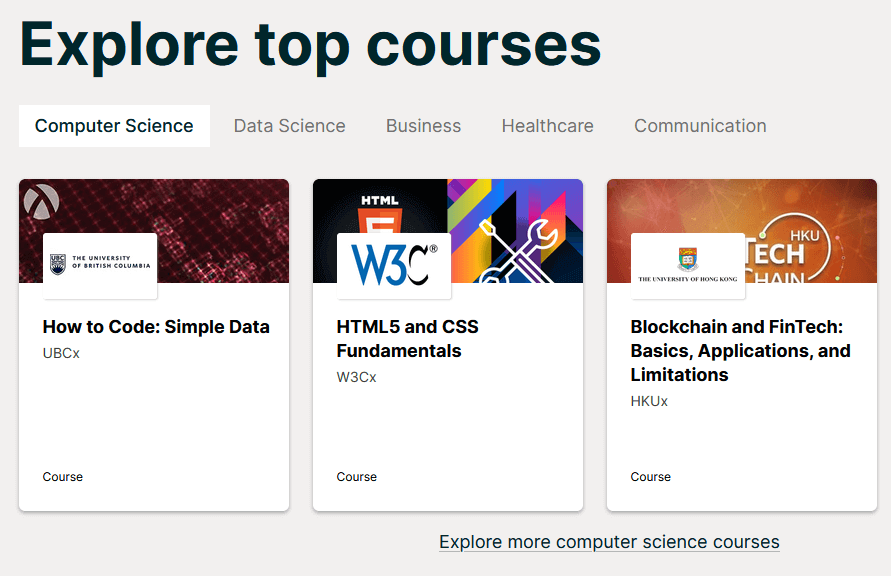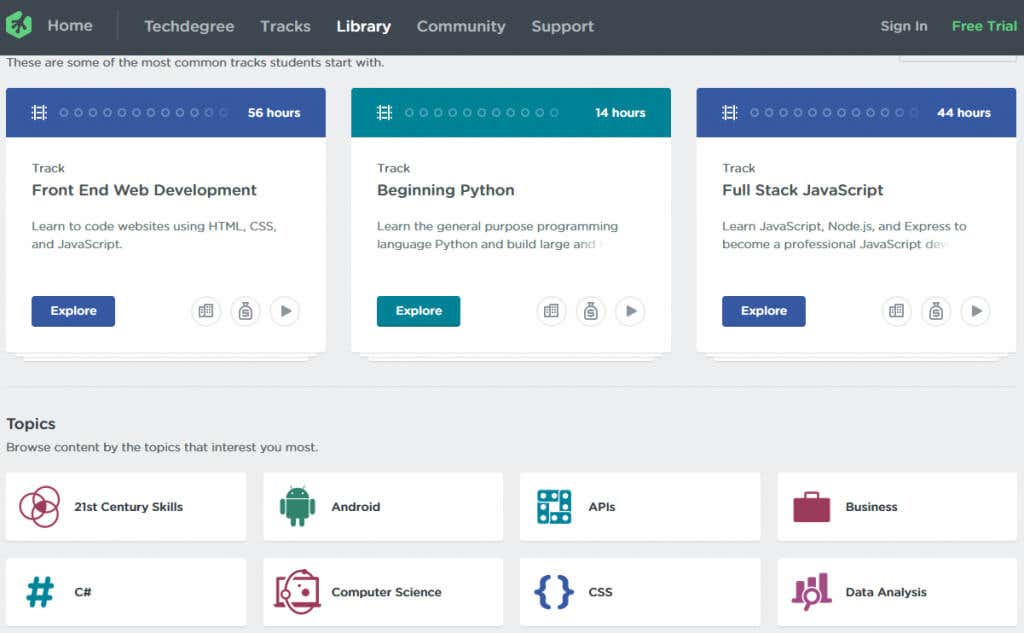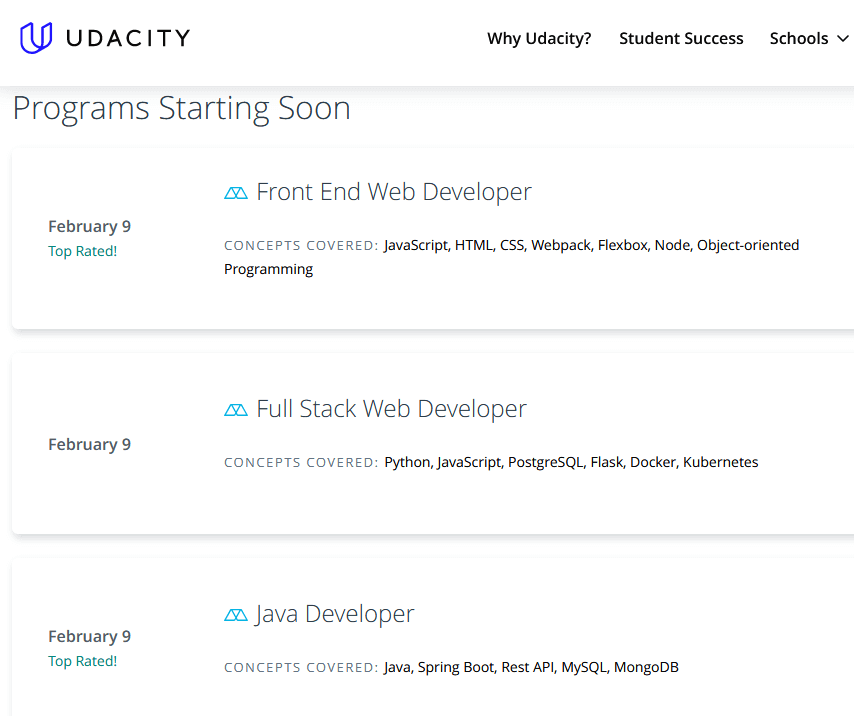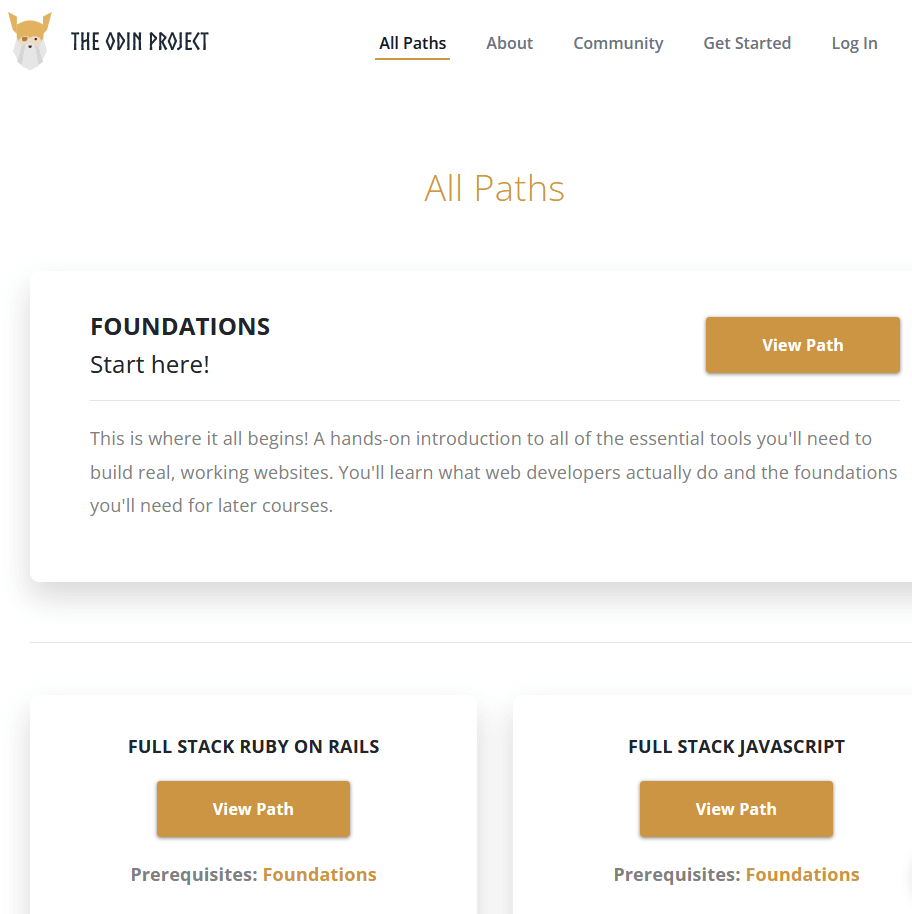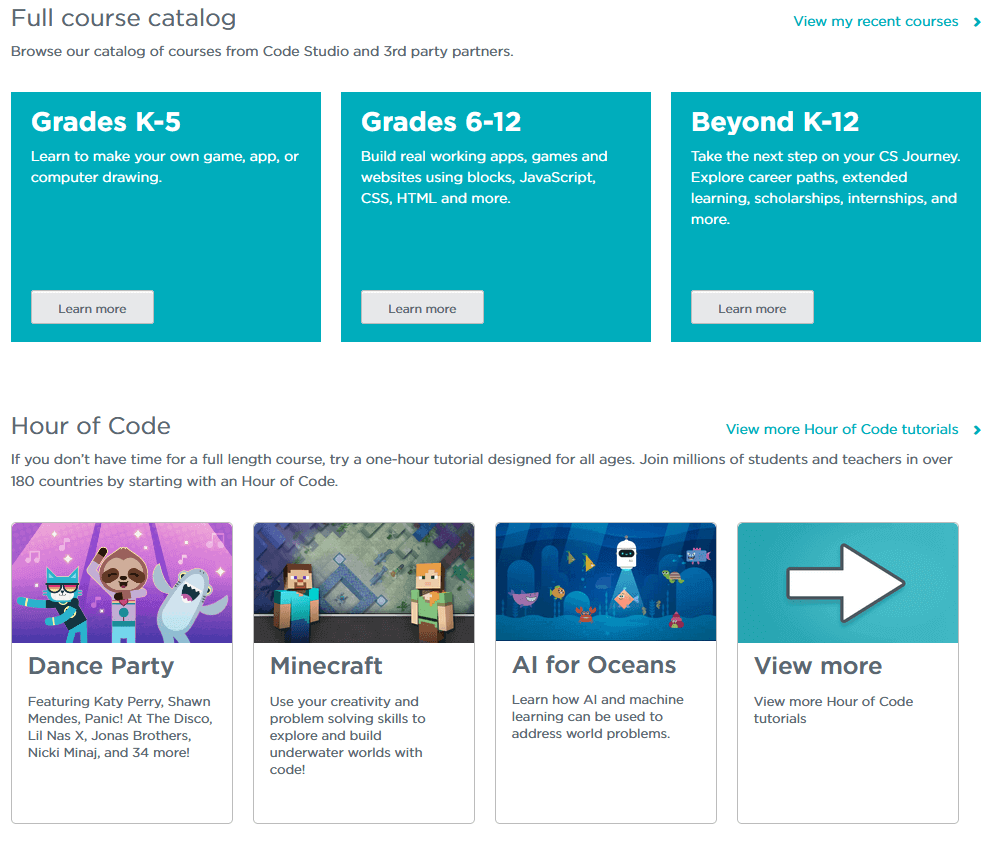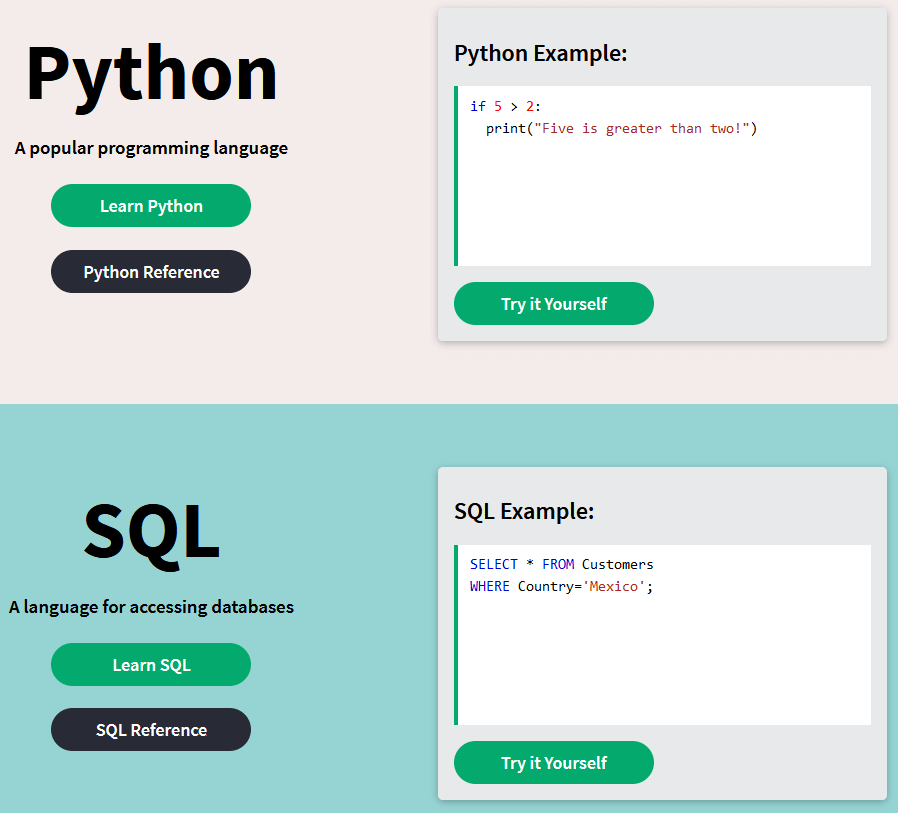No need to go to college
Learning a programming language can be helpful to more than just people in specialized tech industries. Whether you want to become a web developer, data scientist, game developer, or just automate daily tasks, coding is for you.
In this article, we’re going to look at the best sites to learn coding in different languages including Java, PHP, C#, Python, C++, SQL, and many more. You don’t need to go to college to become a programmer when there are many free resources and affordable courses.
1. Codeacademy
Codeacademy doesn’t need much introduction because it’s well-known for its selection of free programming courses. You’ll find all the resources you need to learn the languages for web development, Android app development, or machine learning. Try the introductory courses to get an idea about the classes and whether they’re for you. Also, give HTML and CSS a shot if you’re entirely new to coding.
Codeacademy excels once you sign up for the Pro plan. For $15.99/month, you get better guidance, access to real-world projects for practice, and certificates. If you already know your goals, you can choose a preset career path like Data Scientist or Front-End Engineer that comes with all the lessons you need in one convenient package.
| Pros | Cons |
| Free courses | Certificates are not accredited |
| Wide variety of programming languages | |
| Beginner-friendly | |
| Community forums and Discord channel |
2. freeCodeCamp
Like the name suggests, freeCodeCamp is a learning platform with free programming courses. If you’re just starting out and not yet sure what coding languages to focus on, freeCodeCamp is a good start.
The free resources on freeCodeCamp include basic scripting languages like HTML and introductory classes, but you also can specialize by learning things like Bootstrap, React, Redux, Tensorflow, and algorithm scripting. Choose one of the convenient course packages (like “Scientific Computing with Python”) that have 300 hours worth of study material to get on a career-oriented path.
| Pros | Cons |
| Free courses | No course progress indicator |
| Starts you off with GitHub | |
| Build projects from scratch | |
| Introductory steps for non-coders |
3. Coursera
Coursera is another great place to start if you want to test the waters without spending any money. You’ll find a wide range of free programming courses and many of them are taught by professors from renowned universities like Stanford, Harvard, and Yale.
That said, Coursera shines when you invest $59/month in the Coursera Plus program. You’ll open up many more specialized courses and gain access to guided projects. This way you’ll get some hands-on programming experience and also earn certificates that you can share on your CV.
| Pros | Cons |
| Free courses and affordable prices | Many courses require prior knowledge |
| Partnered with universities | |
| Download courses and learn offline | |
| Officially recognized certifications |
4. Udemy
Udemy is an online platform where you can learn almost anything, including learning how to code. You can find thousands of programming courses, both free and paid, that teach you everything from the basics to specialized topics.
The best thing about Udemy is its system. It feels like an online marketplace. That makes it easier to find the type of course you want. You can browse the most popular courses based on the number of students, ratings, and reviews. For example, it’s hard to make a mistake when you choose a Python course with 200,000 enrolled students, 4.8 stars average rating, and plenty of detailed reviews that explain the course.
Another thing worth mentioning is the money-back guarantee. Udemy offers a refund no questions asked, no matter what the course instructor says. So If you finish a course and don’t feel like you got your money’s worth, you have 30 days to ask for a refund.
| Pros | Cons |
| Free courses and affordable prices | Certificates are not accredited |
| 30-day refund policy | Course quality control is sometimes lacking |
| Lifetime access | |
| Community forums |
5. Pluralsight
Pluralsight is a learning platform like Udemy and Coursera but it focuses only on tech skills. It offers you all IT courses you can imagine, but you can also choose a preset learning path. The learning path will teach you a certain skill, like coding in Python, from start to finish.
Pluralsight also updates its content regularly, so it’s worth coming back to update your knowledge about a certain programming language. You can try the learning paths during a free trial and after that switch to a subscription plan that suits your needs.
| Pros | Cons |
| Free trial period | No free courses |
| Courses are available offline | |
| Quizzes test your knowledge retention | |
| Great customer support 24/7 |
6. Khan Academy
Khan Academy is ideal if you’re just starting out. It’s never been easier to learn computer programming basics in any language and it’s free. And best of all is that you don’t even need to sign up for an account. You start learning how to code right away.
If you tried other learning platforms but had a tough time sticking to the lessons, you should give Khan Academy a shot. This platform turned learning into a sort of game. With each lesson you complete or goal you reach, you get rewards with points and various badges. It may sound silly to an adult, but gamified learning can motivate you.
| Pros | Cons |
| 100% free | Quality of content varies |
| Gamified learning with tracked progress | |
| Child-friendly | |
7. edX
If you’re a big fan of formal education, edX might be the best site to learn coding. It offers college-level programming and computer science courses from the most reputable universities in the world.
Learn about the newest technologies and coding languages from Harvard and MIT lectures. Practice everything you learn through quizzes, tests, and virtual environments. You can study at your own pace without worrying about subscriptions because edX is free, but you can also opt for a premium version that includes graded assignments and exams as well as a certification.
| Pros | Cons |
| Free courses | Certificates and graded assignments only for premium users |
| 14-day refund policy | Course inconsistency |
| Partnered with universities like Harvard | |
| Optional certificates |
8. Team Treehouse
Team Treehouse produces all of its course content instead of hosting tutors and instructors. This means your learning experience will be far more consistent than on other platforms and you’ll be working on real-world projects. The special attention to studying through projects is what sets Team Treehouse apart from other sites.
Team Treehouse is a subscription-based learning platform that feels like an online bootcamp. By opting for a $25 monthly subscription plan, you get access to all programming courses on the platform, and you can start building your professional portfolio.
| Pros | Cons |
| Free 7-day trial | Limited range of courses |
| Consistent interactive courses | Trial period requires credit/debit card information |
| Career-focused material | |
| Project-driven learning |
9. Udacity
Udacity offers a large collection of programming courses based on your interests. There are multiple “schools” to choose from, such as the school of programming and development and school of cybersecurity. Each school comes with a set of programs that cover all the concepts you need to master a certain topic.
Udacity courses consist of lectures, quizzes, projects, and discussion boards where you can interact with fellow students. Additionally, if you opt for a programming language degree, you’ll also get support from an instructor.
| Pros | Cons |
| Free courses | Expensive compared to other platforms |
| Resume, LinkedIn, and GitHub reviews and advice | |
| Courses designed with industry-leading partners like Google | |
| Quizzes and projects part of courses |
10. The Odin Project
If you love project-focused learning, the Odin Project might be the best option for you. Despite the ominous name that makes it sound like a CIA project, the Odin Project is a beginner-friendly platform with free coding courses. The idea behind it is to teach you programming languages hands-on by working on real projects instead of just watching videos and taking notes. This means you’ll work from scratch, including setting up your own IDE.
The Odin Project offers you two major paths: the Ruby on Rails curriculum and the full stack JavaScript curriculum. While your options seem limited, they’re actually not. For example, the Ruby on Rails curriculum will teach you HTML, CSS, SQL, and JavaScript next to Ruby programming. You get a lot of value for free.
| Pros | Cons |
| Completely free | No help from teachers/tutors |
| Project-based learning | Very little hand holding |
| Encouraged to solve problems on your own | |
| Available Discord channel |
11. Codewars
Turn learning how to code into a game with Codewars. This is an interactive platform that teaches you by giving you challenges. Each challenge is a coding exercise or problem that you need to solve in order to move on to the next.
You’ll find the most popular coding languages to practice, including Python, C#, Ruby, Java, and SQL. Simply pick your favorite language and solve the problem. The further you progress, the tougher the exercises get. This makes Codewars an excellent learning companion next to one of the course-heavy sites on this list like Udemy, Coursera, and Pluralsight.
| Pros | Cons |
| Simple and already set up to use | Promotes solving problems instead of clean code |
| Challenges you to improve | |
| Compare your solution to others | |
| Supports many languages, including some in beta |
12. Code.org
Code.org is a non-profit learning platform that offers a variety of coding lessons to students of all ages. While most courses are designed for a younger audience, they’re still great for complete beginners because of their simplicity. Additionally, you can opt for short 1-hour long tutorials if you don’t have much time to invest in coding.
| Pros | Cons |
| Completely free | Some exercises feel like a guessing game |
| Child-friendly | |
| Encourages kids to learn in a fun environment |
13. W3Schools
W3Schools is one of the most popular free coding resources out there. You’ll find tutorials for the most commonly used programming languages and you don’t even need an account. You’ll also find the best text-based tutorials that come with short but clear explanations followed by code examples, and you can test yourself with exercises and quizzes.
That said, you can also optionally pay for access to various courses and course packs by purchasing them. For example, a premium SQL or Bootstrap course costs $95 and the front-end development package costs $190. You can also get full access to all courses and certifications for $695, if you’re truly dedicated.
| Pros | Cons |
| Completely free with optional paid packages | Some of the information is out of date |
| Quick reference source | |
| Supports many languages |
Which is your favorite site to learn and practice coding? Or do you prefer to learn programming from YouTube channels? Let us know in the comments below!


